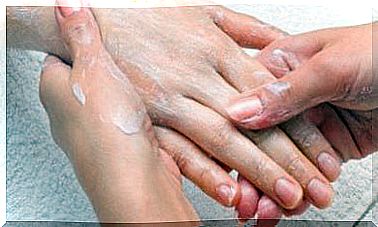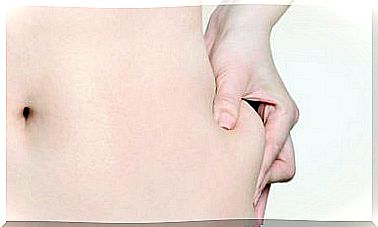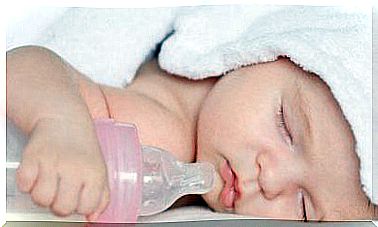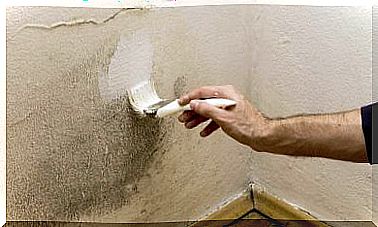Heat Stress – What Is It?

Heat stress can cause dizziness, loss of concentration, and mood swings.
Heat stress is defined as the heat load to which workers are exposed. This is the result of a combination of the environmental conditions in the workplace, the physical activity they must perform and the clothes they wear to do their job.
In other words, heat stress refers to a problem with the workplace. This is not the usual effect of heat on workers, but is defined as the cause of a series of negative consequences in the body produced by heat build-up.
This is a situation that worsens in warm seasons. Therefore, in this article, we explain everything you need to know about heat stress.
What is heat stress?
Workers are exposed to high temperatures in many workplaces, such as at furnaces or in foundries. In other cases, they are required to exercise considerable physical exertion or wear protective equipment that causes them to get warm.
The truth is that in all of them, workers are exposed to excessive heat build-up, posing a serious health risk. When body temperature rises, regulatory mechanisms are triggered, most notably sweating and dilation of the blood vessels in the skin.
When these conditions are present, the body may have difficulty lowering its temperature. If the temperature rises above 38 ° C, it may damage your health. If it continues to rise, it could even kill you.
The severity of the effects of heat stress varies with certain factors. The most influential of them are:
- Age and health of the employee.
- The length of time the worker has been exposed to high temperatures.
- No rest.
- Certain medications, such as antihistamines or anxiolytics. Worker drinking alcohol or drug use also plays a role.
- Clothes and workplace.
- No acclimatization. This is the process by which the body adapts to its environment and temperature. It is relatively slow, so gradual acclimatization is recommended. Ideally, it should last one to two weeks.
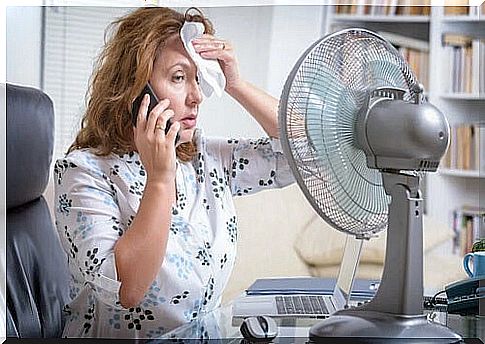
What can cause heat stress?
Heat stress can increase the risk of accidents at work. In addition, if an employee already suffers from an illness, the illness may worsen. In the beginning, as the temperature rises, such a person often feels short of breath or dizzy.
The heat also causes headaches, lack of concentration and memory impairment. They can even cause mood swings. So, if high temperature is maintained it can lead to:
- Dehydration, with all that goes with it (dryness, tachycardia, decreased urine output, etc.)
- Muscle cramps.
- Fainting and fainting.
- Skin rashes.
- Exhaustion and nausea.
However, the greatest complication is heat stroke. It is an emergency situation characterized by tachycardia and disorientation. In addition, breathing becomes fast and sluggish. The person may faint and their body temperature may exceed 40ºC.

You might be interested in: Dehydration of the body – 7 symptoms
How can we prevent this?
As we mentioned, all of these problems arise from heat build-up in the body. Moreover, as this is a work situation, it is very important that both the company and employees are aware of it. Everyone has to take steps to try to prevent this from happening.
First of all, make sure that good acclimatization to heat has been carried out. Likewise, the pace of work must be adapted to these temperatures. When simplifying the topic, try to work in the shade and in relative coolness.
If this is not possible, it is recommended to do the work during the coolest times of the day. For this reason, work from 12am to 4pm should be avoided. It’s also a good idea to schedule shifts for employees.
Frequent breaks in cool places are ideal. In addition, you need to hydrate your body properly throughout the day. Meals should be light and, of course, alcohol should be avoided.
Summary
Heat stress is a situation that affects many workers. Therefore, it is imperative to take all possible measures to try to prevent this from happening. It is worth trying to get mechanical help so that the physical effort at work was better.
If this is not possible, try to reduce heat build-up. Basic remedial measures are essential to wearing the right clothes, protecting your head, and keeping your body hydrated. Likewise, take adequate breaks and rest in cool places.


